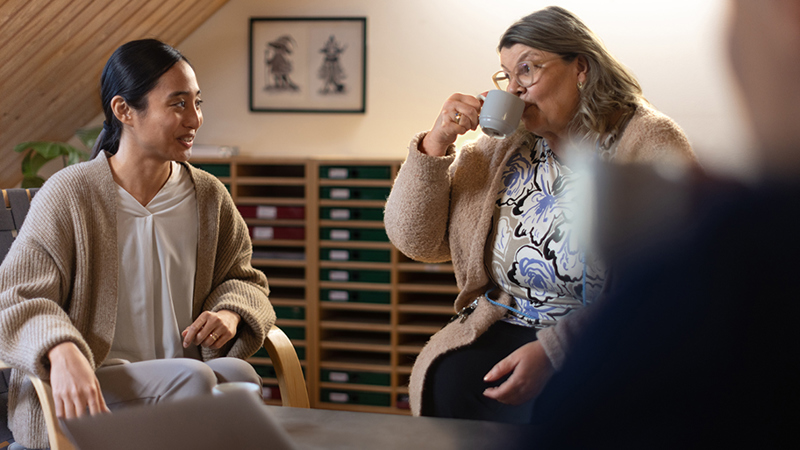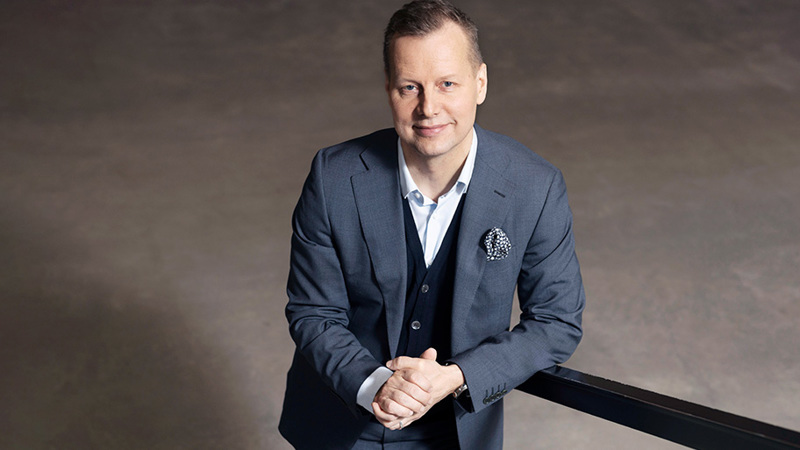Back to work – great! Returning to work should not cause anxiety
It is time to return to work, but there is no reason to worry. When your vacation is coming to an end, you may feel a little wistful, but returning to work should not cause anxiety. At best, returning to work brings a lot of joy to life. An occupational psychologist reveals how to make returning to work easy and fun.

Returning to work feels exasperating, and worry and restlessness fill the mind as the vacation draws to a close. Is this really the case? According to Terveystalo’s Chief Occupational Psychologist Antti Aro, the whole concept of return-to-work stress is a myth.
“For the majority of people, returning from vacation is not particularly stressful – often you return to a familiar place and do the same things as before the vacation. Many people actually find it positive that they can return to their daily routines,” emphasizes Aro.
If you have had a really good vacation, it is only natural that there may be feelings of longing associated with its end. However, returning to work should not cause anxiety.
What is it that bugs you about returning to work?
When returning to work feels bad, there is probably something wrong at work. The disturbing things can be avoided on vacation, but the same problems are still waiting at the workplace.
“Getting started is always difficult. Returning to work is a situation of change that takes time to get used to. If even the thought of going to the workplace causes stress, you should think about whether everything is okay. Do I like my job? When you return from vacation, you often look at your everyday life with new eyes,” says Aro.
On vacation, working memory resets effectively, and acute work-related issues disappear from the mind. When the vacation is coming to an end, it is especially common for people who do information work to worry about whether they will remember where they left off before the vacation.
“Returning from vacation can be made easier by storing important information in a safe place before going on vacation. It is a good idea to write down what you were working on and what you left unfinished. When returning to work, stress decreases when you can take out your notes and continue where you left off,” says Aro.
Get down to challenging tasks right away
It is often said that you should start working gradually after a vacation. However, Aro disagrees:
“Adults are not like first graders – a brisk start is better in many ways. Wandering around the workplace only creates more stress. The sooner you can start working on something exciting, the easier it will be to return to work,” he emphasizes.
The most important thing is to properly schedule the vacations so that there are not too many expectations loaded into a single vacation. According to Aro, as a rule of thumb, three weeks is enough to break away from the busyness of work, but even a few vacation days can be enough to recover:
“The length of the vacation does not really affect its restoring effect. It is more important to think about what you do on vacation. If you can effectively get your thoughts off work, a long weekend can serve as a good break from time to time.”
5 tips for returning to work:
- Be positive.As simple as it sounds, returning to work becomes easier when you approach it in a positive light.
- Get your sleep rhythm in order before starting work.If your daily rhythm on vacation is very different from regular working weekdays, bedtimes may need to be adjusted. You should start adjusting your rhythm a few days before the end of the vacation, so you will feel more refreshed when work starts.
- Get started efficiently.Starting slowly will not make returning to work any easier. You should jump straight into challenging tasks so that you can get up to speed with the work right away. Memorizing passwords and tasks makes it easier to get back to work.
- Catch up with colleagues.Casual catching up helps to tune into the same wavelength with colleagues. Shared enthusiasm creates team spirit and makes working as a team easier.
- Schedule the vacations.You should not expect to be relaxed enough for the whole year with only one long vacation. When possible, schedule the vacations so that you can have a few extended weekends in addition to a longer consecutive vacation. This is when the restorative effect of the vacation is at its greatest, and going on vacation and returning to work will not feel too overwhelming.
Latest articles

Behavioral addictions have increased: "Addiction is a brain disease"
Particularly among young people, addictions to digital games and social media have increased following the COVID-19 pandemic.

Where did our attention go and how can we get it back?
We live in an era of overachievement and stimuli, which affects our ability to maintain attention, says Joakim Harju, a psychiatric nurse and paramedic at Terveystalo.

Four relaxation exercises for the whole family for the Christmas rush
Christmas can be a busy and hectic time for families with children. A moment of peace and quiet with your family is an invaluable opportunity to enjoy Christmas.

8+1 ways to improve your energy levels
Are you tired during the day or do you still have high blood pressure in the evening? Try these tips for a better state of alertness, advises doctor Sanna-Tuulia Mattilan from Terveystalo Focus Uni in Tampere.

Mental health-related absences reduced by 45% with brief psychotherapy - significant impact on other absences too
A study by Terveystalo* monitored the impact of brief psychotherapy for occupational health clients on sickness absence in 2019-2024.The study found that the use of brief psychotherapy reduced mental health-related sickness absence by 45% and other sickness absence by 19%. The study follows on from a similar study carried out 2 years ago and reinforces the importance of timely access to treatment for mental health symptoms.

3 megatrends challenge wellbeing management and productivity: 'Fear of the paranoid is ever-present for managers'
The megatrends of the working life revolution and the productivity stagnation they are contributing to can be seen as concrete phenomena in Finnish workplaces. In the midst of the turbulence, both management and employees are wondering. But with good strategic leadership and partnership, human efficiency can be achieved.